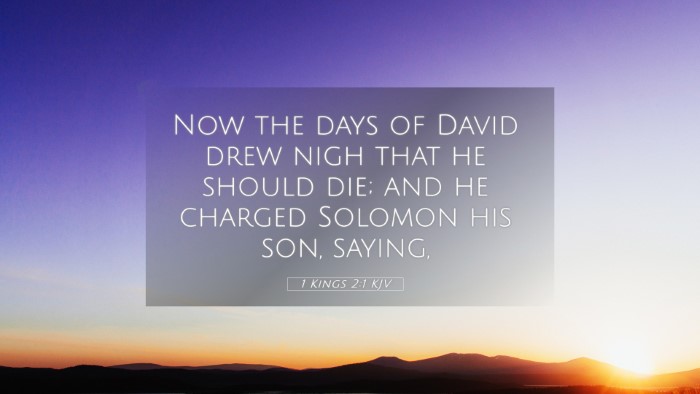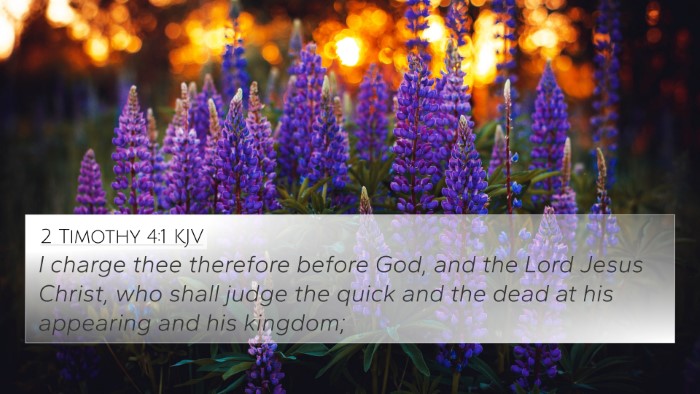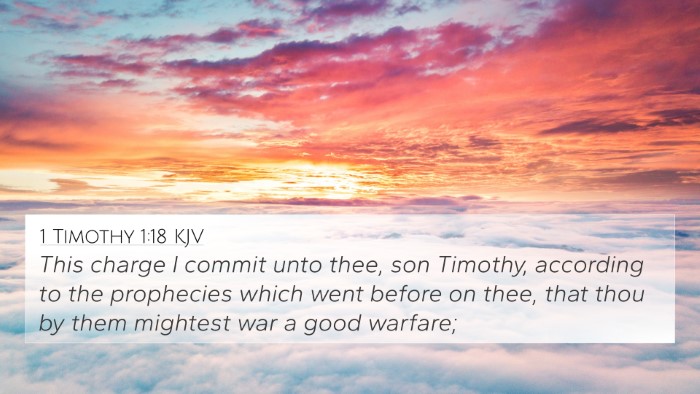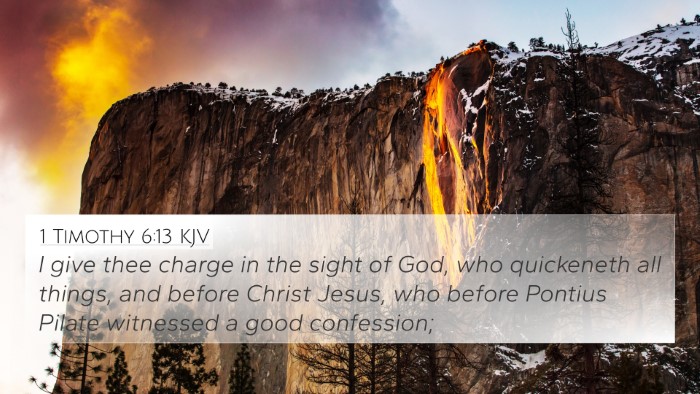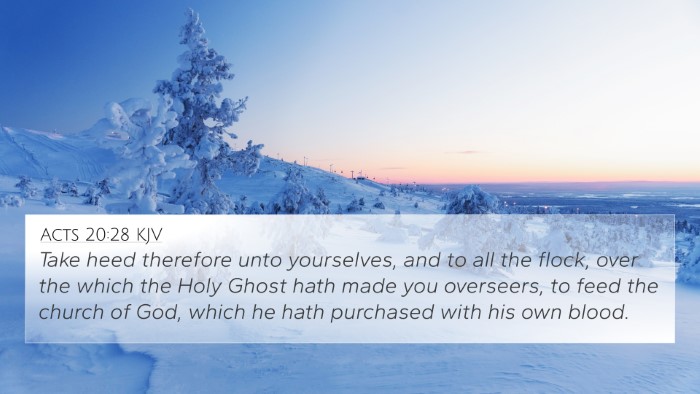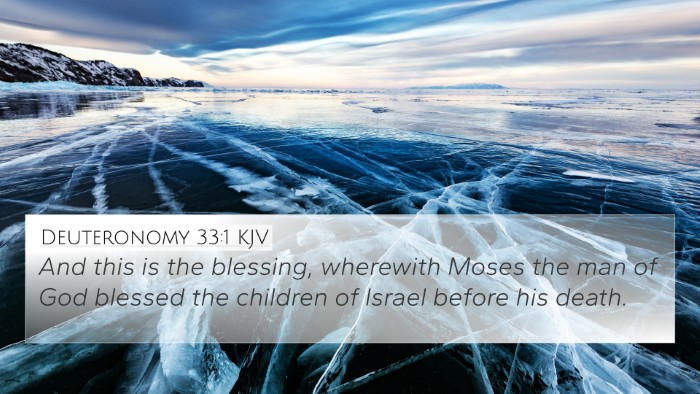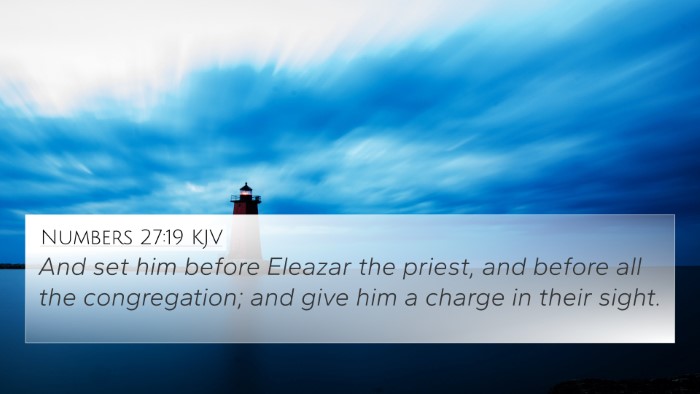Understanding 1 Kings 2:1: A Comprehensive Analysis
Bible Verse: 1 Kings 2:1 - "Now the days of David drew nigh that he should die; and he charged Solomon his son, saying,"
Introduction
This verse marks a pivotal moment in the narrative of the Israelite monarchy, as King David prepares to pass the torch to his son Solomon. The gravity of David's impending death sets the stage for the critical teachings and guidance he imparts to Solomon. This passage is rich with thematic connections and can be linked to several other scriptures throughout the Bible.
Summary of Insights from Public Domain Commentaries
-
Matthew Henry:
Matthew Henry emphasizes David's role not just as a king but as a father. His final words to Solomon are warnings and instructions that underscore the importance of godliness and wisdom in leadership. This moment illustrates David's care for the future of Israel and the legacy he wishes to impart to his son.
-
Albert Barnes:
Albert Barnes reflects on the historical context, noting that David’s acknowledgment of his mortality brings forth a sense of urgency in his instructions. He points out the significance of Solomon's succession and the responsibilities that come with kingship, emphasizing the moral and spiritual guidance necessary for rulers.
-
Adam Clarke:
Adam Clarke provides an analysis of the text's language, underscoring the nature of David's charge as both a command and a blessing. He highlights the relational dynamics at play, showing how David’s desire for Solomon to adhere to the covenant with God is central to his message.
Bible Cross-References
The importance of understanding 1 Kings 2:1 is magnified when we cross-reference it with other relevant scriptures. Here are significant Bible verses that relate to this passage:
- 2 Samuel 7:12-13: God's promise to David regarding his lineage and the establishment of Solomon's kingdom.
- 1 Chronicles 28:9-10: David's charge to Solomon regarding serving God wholeheartedly.
- Proverbs 4:1-2: Encouragement towards wisdom, paralleling David’s teachings to Solomon.
- Deuteronomy 6:6-9: The command to teach children about God’s statutes, resonating with David’s instructions.
- 1 Kings 3:5-14: Solomon’s request for wisdom, reflecting the foundation laid by David’s guidance.
- Psalm 78:72: David's leadership characterized by integrity and skill, setting the standard for Solomon.
- 1 Kings 9:4-5: God's promise to Solomon, paralleling the call to righteousness and faithfulness.
Thematic Connections
This verse not only contributes to our understanding of the individual characters of David and Solomon but also invites deeper exploration of themes such as:
- Father-Son Relationships: The dynamics of guidance and instruction that reflect both love and responsibility.
- Leadership and Legacy: What it means to lead in accordance with divine will and the significance of a leader’s legacy.
- Wisdom in Governance: The essential need for divine wisdom in leadership roles, particularly in the context of Israel’s monarchy.
- Faithfulness to God’s Covenant: The recurring theme of covenant fidelity as a foundation for stability and blessing in leadership.
Conclusion
In conclusion, 1 Kings 2:1 serves as a crucial intersection of personal instruction and divine guidance that resonates throughout the Scriptures. By engaging in comparative analysis and thematic exploration, we can identify the rich tapestry of biblical connections and deepen our understanding of both the text and its contemporary applications.
Helpful Tools for Bible Cross-Referencing
For those interested in exploring Bible verse connections further, the following tools and resources can facilitate deeper study:
- Bible Concordance
- Bible Cross-Reference Guide
- Cross-Reference Bible Study Tools
- Comprehensive Bible Cross-Reference Materials
- Methods for Cross-Referencing Bible Studies
Further Study on Inter-Biblical Dialogue
To delve deeper into the connections between Old and New Testament teachings, consider studying:
- Identifying the relations between the Prophets and Apostolic teachings.
- Cross-referenced themes between Psalms and New Testament lessons.
- Links found in the comparative study of Pauline Epistles.

